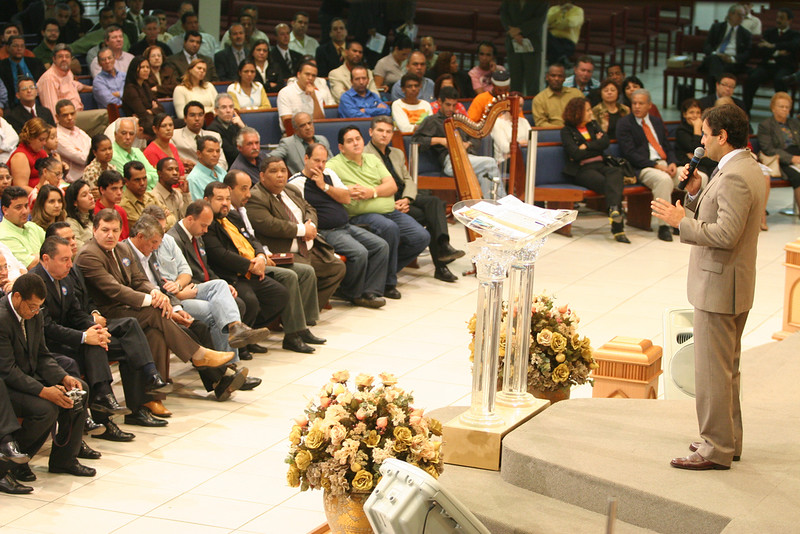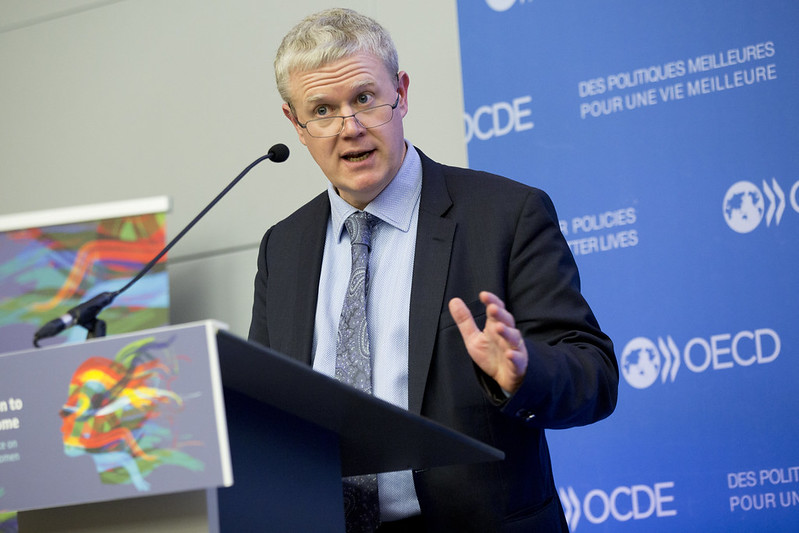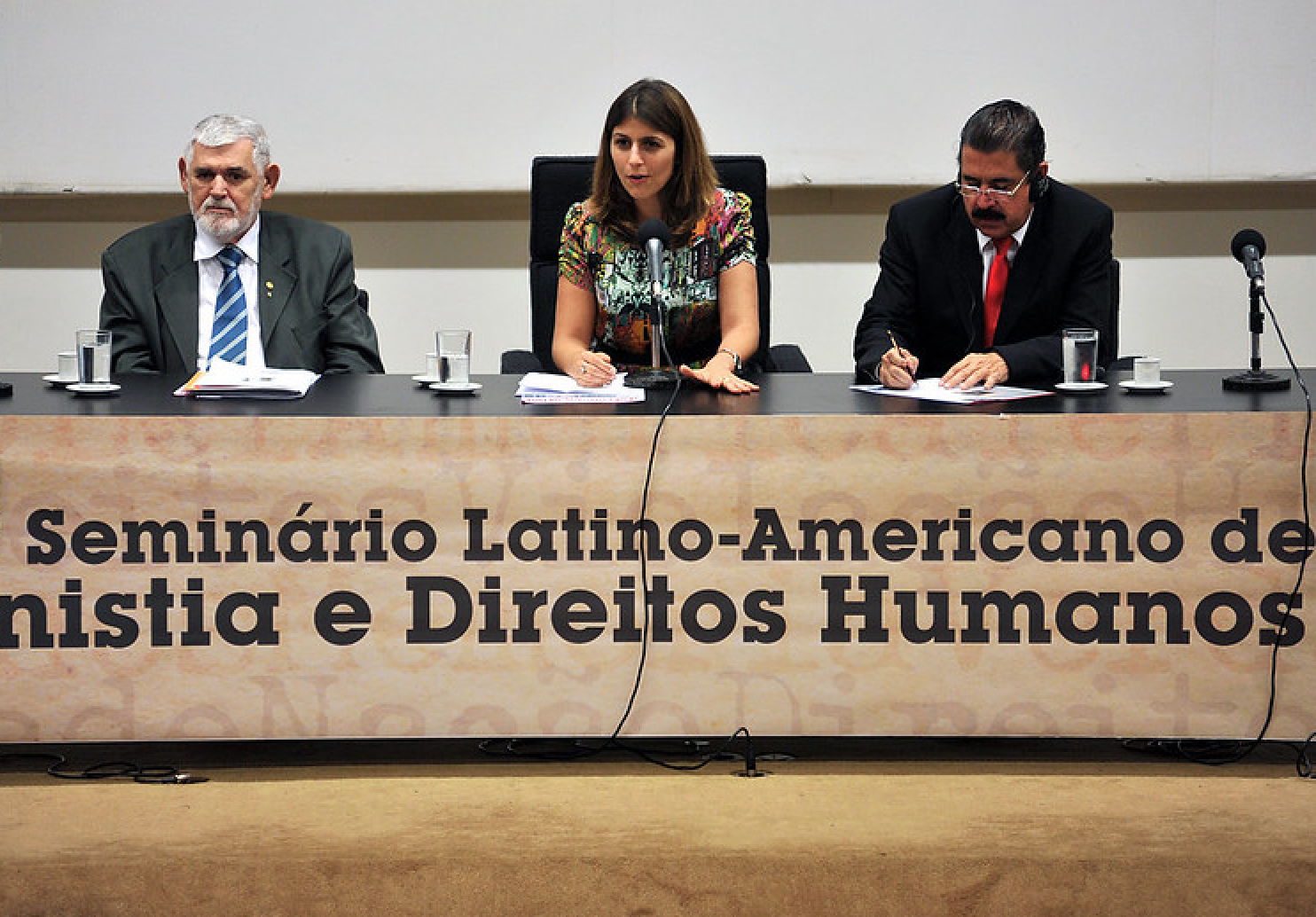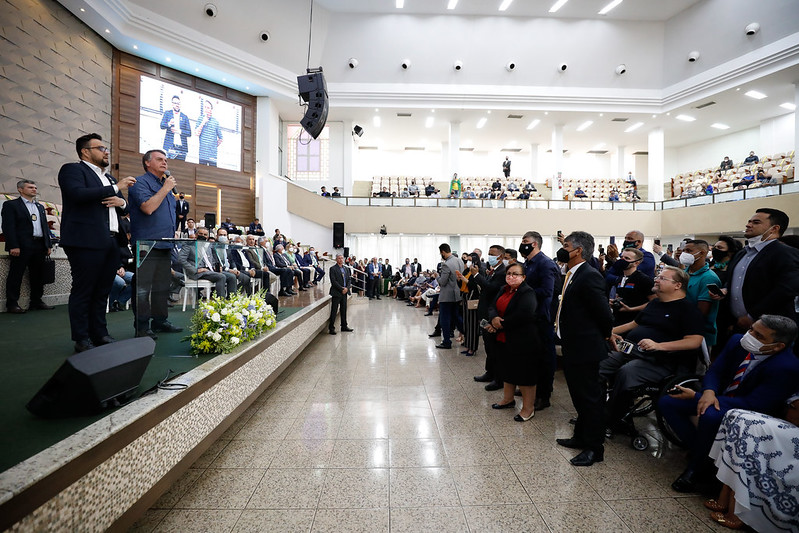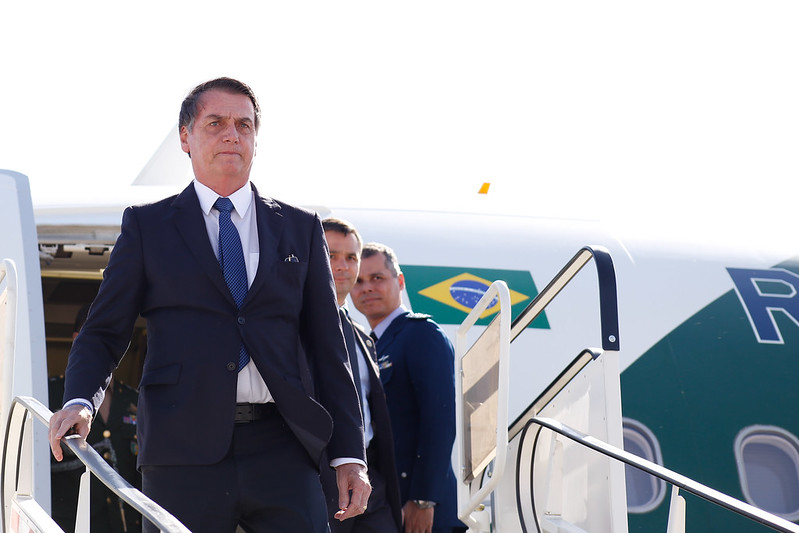Imakay Research Hub
Artigo
The Sacraments of Brazilian Politics: a digression into the relationship between religion and power in the country
31/12/2022
Jéssica da Silva Duarte, PhD in Political Science (UFRGS)
In the current political context in Brazil, after the results of the elections that took place between 2018 and 2022, the role of churches in Brazilian politics, especially the neo-Pentecostal ones, has gained salience in academic studies, in the specialized media, and among political parties themselves. In fact, when we analyze strictly the election of Jair Bolsonaro to the presidency of the country (with a conservative and extreme right-wing discourse) together with the growth in the occupation of seats in congress by religious leaders and a new election in 2022 marked by positions and attacks of a religious nature, the relevance of faith in the most recent disputes for power cannot be denied. However, to better evaluate this scenario, we need to go beyond the surface and ask ourselves how or why religion influences politics, its real unprecedentedness in current times and its role in Brazilian political history.
Religion and politics in Brazil
Ideology is an important and powerful social tool, basically, because it establishes symbolic repertoires that are absorbed by the collective imagination, guide the worldview of individuals and directly permeate power disputes. Among the many existing ideologies, the conservative bias is in direct dialogue with religious beliefs and dogmas, and it is on this track that Bolsonaro and most of the religious leaders who are currently active in the legislature and/or influence public opinion have advanced to the center of national politics. In the case of Jair Bolsonaro it is interesting to note that, even without performing ideally the Christian conservative principles, the incorporation and instrumentalization of some issues and demands guaranteed the adhesion of the majority of this electorate.
Certainly, moments of crisis are very favorable for the reverberation and agglutination of this type of rhetoric. Even more certain is to determine that Brazilian politics has been going through a period of great turmoil and political, social and economic instability since the protests of 2013. For sure, politics – not only Brazilian politics – consists of a certain level of drama. These experiences are partially reversible but are lived intensely in cognitive and emotional terms, directly triggering affection and insecurity about the future.
In a broader historical context, religion and politics have always been intertwined. The essence of the strategic use of religion by politics (and vice versa) was already present in Machiavelli when he pointed out that more important than the religious content or actors, is its agglutinating and normative function of collective life. Even more specifically, religiosity was a fundamental part of the “foundation” of Brazil. In other words, Brazil as a nation-state was built from the influence and cultural impact caused by European colonization that, among other objectives, had the mission of disseminating Catholic faith and belief. Probably the biggest novelty in this scenario is the Pentecostal evangelical emergence.
In any case, this “newness” dates back to the last four decades and has characteristics that transcend its particular agency and strength. The neo-Pentecostal political advance is the result of a conjunction of processes within churches, as well as political changes and opportunities. With regard to the actions of this movement, there is a combination of arguments that deserves to be highlighted: a “minorityization”, that is, the demand for more representation of the “Christian majority” and the evangelical sector in the public sphere associated with a programmatic ideological profile based on conservative discourses and principles.
The emergence of Pentecostalism
In addition to both of these tools, the politicization of the evangelical sector was provided through a corporate logic to awaken and mobilize the faithful and their leaders. In contextual terms, this process was fostered in the country from the liberalization of the military regime and the consequent formation of new groups and demands. The result of this movement was the emergence of Pentecostalism and conservatism, as well as the constitution of a collective actor: “the evangelicals” or the “Bible Caucus”.
Another force for the evangelical rise to the political elite was the political, economic and moral/behavioral changes that occurred in this century since the contestation of the social order is understood by part of the individuals – the conservatives – as a threat to be fought. Transformation and change generate a social dichotomization capable of generating polarization and strengthening groups which until then were without an “enemy to fight” and had little relevance. That said, once again there is a collective and corporate effect from the logic of “us versus them”. This operation, in turn, strongly triggers the emotional appeal of belonging to the detriment of cognitive and critical capacity.
To benefit from this in the digital networks, extreme right-wing conservative groups have used disinformation as a political communication strategy to motivate and activate the identity and political action of these individuals. In this hegemony crisis, the polarized division determines a dispute for “the people”. It is relevant to note that, even before having protagonism and due cohesion, sectors of the evangelical church, especially the Universal Church, were part of the base of the PT governments from 2002 until weeks before the impeachment of 2016. Moreover, it is also a fact that not all conservatives are evangelicals and not all evangelicals are conservative.
In this same sense, the idea of “evangelical vote” as a manifestation/choice aligned and ideologically homogeneous is false. Between 1970 and the current period, evangelicals voted for Arena (dictatorship party) and its opposition (MDB / PMDB), through Brizola’s laborism, the right of Collor and the left represented by Lula. Considering these points and all that has been reflected so far, it is possible to scrutinize this current process that has united the Pentecostal and conservative electorate in favor of relatively controversial figures such as Jair Messias Bolsonaro.
Bolsonaro and Christian values
In general, Bolsonaro does not have the ideal profile of a Pentecostal representative. In his personal resume, there are, among other things, several marriages, an accusation of treason, an aggressive temperament and defense of torturers. Nevertheless, he managed to capture and mobilize the conservative electorate – which already existed, but participated in a diffuse way in politics, supplanting the moderate right in the country and embodying this “new” political positioning. The so-called conservative wave articulates in a relatively combined way four lines of social forces: economic liberalism, moral conservatism, penal populism and social intolerance.
Bolsonarism, however, is not only strengthened by forms of conservatism, but “the Messiah” also triggers his followers through resentment created in the country from anti-PT attitudes and the economic crisis. This way, he conquers in addition to evangelicals, black men and women of lower income groups, motorcycle couriers, taxi drivers and middle class white people. Here, once again becomes evident the pragmatism of the agenda and political alliances of Pentecostal groups.
In this context, it is important to mention the massive use of fake news on social media related to an alleged “Christophobia”. One of the main mechanisms used in these interactions was the digital platform WhatsApp, especially in closed circles in which trust is assumed, such as family groups, friends, work, neighbors or religious communities.
Between January and September 2022, the most shared message in more than a thousand WhatsApp groups monitored by UFMG researchers contained attacks on then-candidate Luiz Inácio Lula da Silva and the expressions ‘Christophobia’, ‘destroy churches’, and ‘religious intolerance’. The rhetoric of the threat to religious freedom has even greater appeal because it is directly associated with another narrative: that there is a dispute between moral, traditional values and the political left. Obviously, despite its adherence, it makes no sense to believe there was a persecution of evangelicals in a country that is mostly Christian and in which 30% of the population identifies with this segment.
Outside of social networks, many churches took on the role of campaign committees, in which religious leaders convinced and pressured the faithful to vote for Jair Bolsonaro. The electoral and ideological dispute directly and aggressively affected the religious field in the country. The political polarization and the instrumentalization of faith were so intense that they generated dichotomy and conflicts even among Christians – evangelicals and Catholics. On the one hand, Bolsonaro was often present in evangelical ceremonies and his defeat was lamented by Pentecostal leaders. On the other hand, the same Jair Bolsonaro was criticized by Catholic bishops for the “exploitation of faith”.
The new government and the churches in 2023
Possibly the most significant moments of this disagreement between the Catholic Church and Bolsonaro were the booing that the candidate received during the Círio de Nazaré event and the scenes of turmoil caused by Bolsonaro’s followers during the festivities of Our Lady of Aparecida. The estimate is that among Catholics 59% voted for Lula and 41% for Bolsonaro, while among Evangelicals the advantage is for Jair Messias Bolsonaro with 69% of the vote against 31% for Luiz Inácio Lula da Silva. For 70% of individuals with no religion, Lula was the best candidate.
There are some inferences about the relationship between religion in general, Pentecostalism and the future Lula government. For Joanildo Burity, a political scientist and specialist on the subject, the consolidation of the new Lulism will be conditioned to the outcome of the hegemonic crisis in which the country finds itself since the 2014 elections. However, even if stabilization and normalcy in Brazilian politics are achieved, it is still unlikely that the new president-elect will be able to make progress on a progressive agenda. On the other hand, as already mentioned, Bolsonaro’s alliance with Pentecostalism is pragmatic, so there is a chance that the PT will reconcile with the religious segment if it can make concessions and create new political leadership in this sector. It remains, then, to follow the next pages of this “sacred” story.

